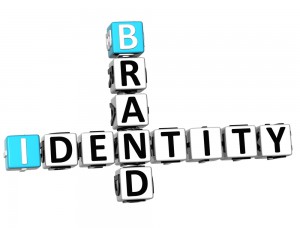 First of all, understand that your team members are already performing as Brand Ambassadors. Because whether they are representing your Brand positively or not, everything they do – good or bad – has an impact on your Brand. That’s right, this minute, everyone is already a Brand Ambassador, whether they know it or not – no matter what job they are doing. A person becomes your Brand Ambassador from the minute they are hired until the day they leave.
First of all, understand that your team members are already performing as Brand Ambassadors. Because whether they are representing your Brand positively or not, everything they do – good or bad – has an impact on your Brand. That’s right, this minute, everyone is already a Brand Ambassador, whether they know it or not – no matter what job they are doing. A person becomes your Brand Ambassador from the minute they are hired until the day they leave.
The irony here is that even if you don’t know that, your customers do. They get it experientially and of course, physically (is your product or service any good – or not) every time they interact in any way with your company.
So the real question is: What steps should you take to get your team performing as great Brand ambassadors.
Before someone can be a good Brand Ambassador she/he must know what your Brand really is. And as dumb as it may sound, before they can know – you must know. Most entrepreneurs/executives/employees believe that their brands are about name recognition, image, and messages. In other words, Brands and branding are primarily marketing and PR functions. Of course you have a product, or a service. That is the “thing” around which experiences revolve. And that “thing” becomes the foundation of your ad campaigns, your physical and visual images, your messages to the world. Most people think that the name awareness and recognition derived from those campaigns is your Brand. They could not be more wrong. That’s only a part of your Brand. So if that’s only a part, then what is the rest of your Brand?
It’s this: Your Brand is a widely held set of beliefs and expectations about what you deliver and how you deliver it, validated by customers experiences.
You sell products and services. But customers buy experiences and results.
That goes far beyond product and message. Here’s an example. I come to you and say, “Hey, I’ve got a great idea. I’m going to open a coffee shop. I’ll sell good coffee, over the counter, in 3 sizes: small, medium and large. But I’m going to call the sizes something else – just to make it interesting and probably confuse a lot of people. And here’s the best part. I will charge outrageous prices. Is that the coolest thing you’ve ever heard?” If it were just about the coffee, Starbucks would never have made it. Starbucks is about a unique, pleasant experience. Coffee is only part of it.
The list of companies that get it goes on: Legos; IKEA, and of course, Apple. Strong Brands must provide unique experiences. That’s a whole lot more than just touting good products.
So, what steps can you take to turn your team into great Brand Ambassadors?
1. First, YOU must become a great Brand Ambassador.
That means that YOU must define your Brand – not just as a great product or service, but as a total experience and as a set of tangible results. You must define yourself from the your customers’ perspective. The definition must describe the connection and the relationship between you and your customers. And most importantly, whatever you come up with must be aligned with your Core Values (that’s a whole other discussion – far too much for this piece).
2. Put the definition in writing. Make it clear, concise and compelling.
3. Make certain that everyone in your organization receives it, reads it, memorizes it, and understands it.
4. Design and implement regular, continuing training/discussion sessions around the central theme that everything that everyone in your company does impacts your Brand.
Make sure that the sessions include people from different functional areas – not just one area or one department. Everyone is part of the “experience.” People don’t just bus tables, they help create a clean, inviting experience for your patrons. Servers don’t just take food orders, they create a mood for enjoyment. Techs don’t just fix problems, they help make people productive, they communicate compassion for your customers’ frustrations about down time. Sales people in your store(s) don’t just say, “Here’s your size, want to try it on?” They find ways to genuinely compliment your customer about something they’re wearing, or their features. They offer suggestions. They genuinely care.
5. Make being a good Brand Ambassador part of your performance reviews.
Make it one of your criteria in determining raises, bonuses and promotions.
6. Get honest customer feedback – and not just from lame, plain vanilla written surveys.
Have your people pro-actively make some phone calls, especially to customers who had a problem. Listen to their experiences and learn from them. Use them in your training/discussion sessions. Have your people role-play to create better experiences.
7. Never stop.
Becoming and remaining a great Brand Ambassador is a lifetime journey based on liking and respecting people. Enjoy it.
I explain this whole reality with a lot more clarity and detail in my new book, entitled “Brand Delusions” (available on amazon.com in soft cover and Kindle versions). It’s definitely worth reading because it’s impossible to tell you all you need to know in one blog post. If you’d like to continue the discussion or ask questions, contact me at: www.billleider.com.
Bill Leider has worked for over thirty-five years as a strategic consultant to organizations – from Fortune 500’s to entrepreneurial startups, and everything in between. In the course of his work he has helped companies define and integrate their brands as an integral part of the entire organization’s focus, and has assisted in implementing the cultural shifts needed to transform organizations. Along the way, he has also served as the CEO of several companies, both publicly traded and privately owned.
Image Credit: Shutterstock.com



